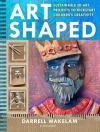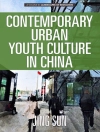This book presents an entirely new approach to professional learning based on perspectives of the knowledge society and, in particular, an interpretation of Knorr Cetina’s work on scientific ‘epistemic cultures’. Starting with a conceptual chapter and followed by a suite of empirical studies from accountancy, education, nursing and software engineering, the book elaborates how: a) knowledge production and circulation take distinct forms in those fields; b) how the knowledge objects of practice in those fields engross and engage professionals and, in the process, people and knowledge are transformed by this engagement. By foregrounding an explicit concern for the role of knowledge in professional learning, the book goes much farther than the current fashion for describing ‘practice-based learning’. It will therefore be of considerable interest to the research, policy, practitioner and student communities involved with professional education/learning or interested in innovation and knowledge development in the professions.
Cuprins
Preface; 1. Introduction – Professional learning in new knowledge landscapes: A cultural perspective; PART I: KNOWLEDGE CULTURES AND PROFESSIONAL LEARNING; 2. Professions as knowledge cultures; 3. The significance of professional education; 4. Knowledge in teacher learning: New professional challenges; 5. Temporal design in auditors’ professional learning: Contemporary epistemic machineries and knowledge strategies in risk auditing; PART II: ARTEFACTS AND PROFESSIONAL LEARNING; 6. The use of knowledge sources amongst novice accountants, engineers, nurses and teachers: An exploratory study; 7. Good professional work in accounting, engineering, nursing and teaching: From practice-based to research-based quality assessment?; 8. Professional training and knowledge sources; PART III: KNOWLEDGE TIES AND MODES OF SELF CONDUCT; 9. The desire to learn: An analysis of knowledge-seeking practices among professionals; 10. Gender, knowledge and desire: A story of change?; 11. Self-technologies in work-based learning; 12. New patterns for epistemic engagement in nursing: An exploratory study into the policy and practices of non-knowledge.












